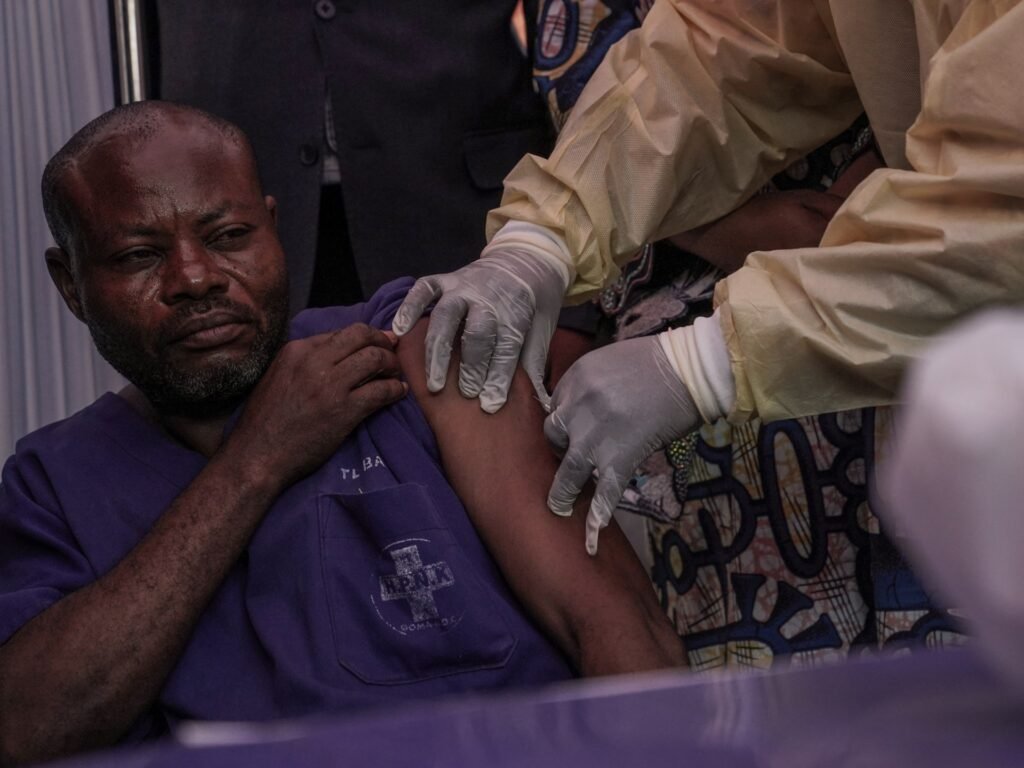Vaccines will first be given to healthcare workers and people with existing health problems.
The Democratic Republic of Congo has launched its first MPX vaccination campaign in the eastern city of Goma, which has been hardest hit by the outbreak.
The first shots were administered to hospital workers on Saturday, and wider vaccinations are expected to begin on Monday in the eastern part of the country, where the current outbreak began last year.
The Democratic Republic of Congo’s Ministry of Public Health warned on Friday that the vaccination campaign will be limited due to low resources. So far, only 265,000 doses are available.
“As you can imagine, in a country of 100 million people, 265,000 doses is not going to solve the problem,” Health Minister Samuel Roger Kamba told a press conference on Friday.
He added that the aim of the operation is to target priority groups, including people with existing health problems and healthcare workers.
More vaccines are expected to arrive from France, Japan and the United States.
Last month, US President Joe Biden said Washington planned to donate 1 million doses of the MPOX vaccine to African countries.
The World Health Organization’s Africa director, Matshidiso Moeti, said in a statement that the vaccine rollout is “an important step in limiting the spread of the virus and ensuring the safety of families and communities.”
Since the beginning of 2024, the Democratic Republic of the Congo has reported more than 30,000 suspected and confirmed cases of mpox infection and 900 deaths, according to the World Health Organization.
The virus can spread through close contact with infected people or animals. Infection with this virus usually causes flu-like symptoms and pus-filled lesions on the body.
In August, the WHO declared mpox a public health emergency after discovering a new, more infectious variant called clade Ib.
According to the Africa Centers for Disease Control and Prevention, mpox has been detected in 16 African countries so far this year.
On Friday, the WHO announced it had approved a PCR test to detect mpox by swabbing skin lesions.
Kamba said WHO had promised DRC about 4,500 tests, but did not give a date for their arrival.

